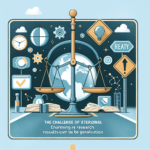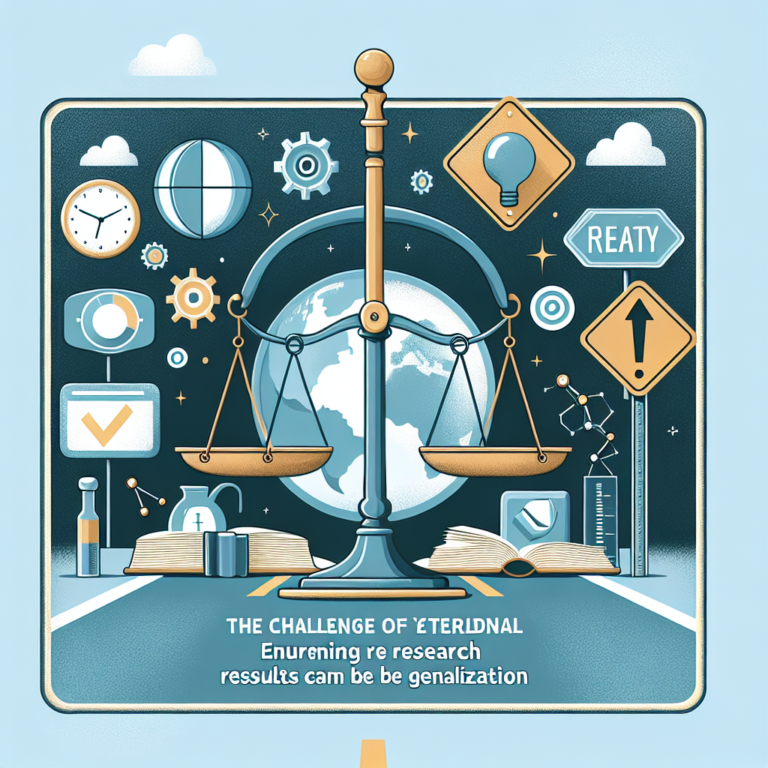
Introduction
In an era marked by rapid scientific advancements and a deluge of information, the concept of scientific rigor has never been more critical. It is foundational to ensuring that research findings are reliable and applicable in real-world settings. However, recent years have presented a challenge: numerous high-profile studies have failed to replicate, leading researchers, policymakers, and the public to question the validity of established conclusions. This article explores the essential topic of Revisiting the Research: What Replication Studies Reveal About Scientific Rigor, examining its implications across various scientific disciplines and offering insights into the importance of replication in maintaining the integrity of research.
The Landscape of Scientific Research
Understanding Scientific Rigor
Scientific rigor refers to the strict adherence to the methodological standards and practices that underpin high-quality research. It encompasses various aspects, including study design, analytic approaches, sampling techniques, and the replication of results. At its core, scientific rigor seeks to eliminate bias and ensure that findings are valid and reproducible. However, Revisiting the Research: What Replication Studies Reveal About Scientific Rigor brings to light the gaps and weaknesses in methodologies that can undermine rigor.
The Importance of Replication
Replication studies play a critical role in validating findings in science. A replication study attempts to reproduce the results of an original study, usually under similar conditions. Failures to replicate can signal issues with the original research, such as flawed methods or biases that skew results. This intrinsic quality of replication underscores its importance in the scientific process, as it fosters a culture of transparency, accountability, and continual improvement.
A Historical Perspective on Replication
Case Study: The Reproducibility Crisis
The reproducibility crisis is a term coined within the scientific community to describe the growing realization that a significant proportion of published research findings cannot be replicated. In 2015, a landmark study published in Nature revealed that less than 40% of studies in psychology could be successfully replicated. This was not an isolated incident; similar findings emerged in fields like cancer biology and social sciences.
| Field | Percentage of Studies Replicated |
|---|---|
| Psychology | 39% |
| Cancer Biology | 25% |
| Economics | 47% |
| Educational Sciences | 57% |
This crisis has prompted widespread calls for Revisiting the Research: What Replication Studies Reveal About Scientific Rigor and has influenced funding agencies and academic institutions to prioritize replication efforts.
The Case of Power Poses
Another illuminating example is the original study by Amy Cuddy and colleagues in 2010, which suggested that "power poses" could significantly impact confidence and hormone levels. The implications of this research led to widespread acceptance and application in various fields, including business and psychology. However, when a large-scale replication attempt published in 2016 failed to show the same effects, it raised questions about the original study’s rigor and validity.
Analyzing the Cuddy Study
The Cuddy study serves as a quintessential example of how initial findings can gain traction despite lacking robust support. Its widespread acceptance illustrates the notion of hype over rigor, emphasizing the urgent need for Revisiting the Research: What Replication Studies Reveal About Scientific Rigor. This case highlights the necessity of scrutinizing findings before applying them in practice.
Challenges to Replication
Publication Bias
Publication bias refers to the tendency of journals to publish positive results over negative or inconclusive findings. This phenomenon creates an incomplete scientific record, leading to an inflated sense of certainty about particular theories or findings. Consequently, replication studies, which often yield less dramatic results, struggle to find publication opportunities.
Incentivization and Reward Structures
In many research fields, scientists are incentivized to produce groundbreaking discoveries rather than validate existing ones. This emphasis on novelty can result in inadequate attention to replication, further undermining scientific rigor. Institutions must Revisit the Research: What Replication Studies Reveal About Scientific Rigor by incentivizing replication alongside original research.
Variability in Study Designs
Differences in study design can significantly impact the ability to replicate findings. Factors such as sample size, setting, measurement tools, and analysis techniques can alter outcomes, highlighting the importance of standardized methodological approaches. Researchers need to ensure that their methods are transparent, reproducible, and reflective of rigorous scientific practices.
Successful Replication Studies: A Beacon of Hope
Case Study: The Importance of Replication in Medicine
A successful replication study demonstrating the effectiveness of a new drug on cardiovascular health, published in The New England Journal of Medicine, can serve to reinforce the reliability of earlier findings. In this instance, the replication of positive outcomes not only supported the original research but also helped in garnering regulatory approval for the drug.
Analyzing the Medical Success
This study highlights the critical role that successful replication can play in establishing scientific rigor and reinforcing trust in medical research. When findings are reliably replicated, both practitioners and patients can proceed with greater confidence, underscoring the need for Revisiting the Research: What Replication Studies Reveal About Scientific Rigor.
The Role of Technology and Data Transparency
Leveraging Open Science Initiatives
The advent of open science initiatives promises to transform the landscape of research. By promoting data sharing, pre-registration of studies, and open-access publishing, the academic community can enhance scientific rigor. These initiatives foster transparency, allowing other researchers to scrutinize methodologies and replicate findings.
The Power of Big Data and Algorithms
Big data analytics and advanced algorithms can assist in identifying patterns and discrepancies across large datasets, aiding in the replication process. Researchers can apply machine learning techniques to evaluate the consistency of findings across multiple studies, offering a more comprehensive view of the scientific landscape.
Enhancing Scientific Rigor Through Collaboration
Interdisciplinary Approach
Collaborative efforts between researchers from different disciplines can lead to richer insights and more robust methods. By embracing diversity in methodology and perspectives, the scientific community can work together to enhance the rigor of replication studies.
Building a Culture of Rigor
Cultivating a culture that prioritizes scientific rigor requires effort at all levels—individual researchers, institutions, and funding bodies must align their efforts. When there is a shared commitment to high standards, Revisiting the Research: What Replication Studies Reveal About Scientific Rigor becomes an intrinsic part of the research process.
Conclusion
Revisiting the Research: What Replication Studies Reveal About Scientific Rigor has far-reaching implications for the scientific community and society at large. By acknowledging the importance of rigorous methodologies, embracing transparency, and encouraging collaboration, we can foster a framework within which reliable and meaningful research flourishes. This pursuit of excellence inspires not only researchers but also the broader public, ensuring that scientific findings can be trusted and effectively applied to real-world challenges.
FAQs
1. What are replication studies, and why are they important?
Replication studies are attempts to duplicate the results of original research. They are crucial for verifying the reliability and validity of findings, helping to establish a solid foundation for scientific knowledge.
2. What is the reproducibility crisis?
The reproducibility crisis refers to the growing recognition that many scientific studies cannot be replicated. This has raised concerns about the integrity of research across various fields.
3. How can publication bias affect scientific findings?
Publication bias favors the dissemination of studies with positive results, leading to an incomplete picture of research. This can skew perceptions about the validity of findings and hinder progress.
4. What role does open science play in improving replication?
Open science initiatives promote transparency and data sharing, which can enhance the rigor of research. By allowing others to scrutinize studies, these initiatives contribute to improved replication efforts.
5. How can researchers incentivize replication?
Institutions and funding bodies can reward replication studies by providing grants and publication opportunities. This shift in focus can encourage researchers to prioritize the validation of findings alongside original research.
This article has examined Revisiting the Research: What Replication Studies Reveal About Scientific Rigor, demonstrating the critical need for transparency, collaboration, and a rigorous approach to research to navigate the complexities of modern science.















